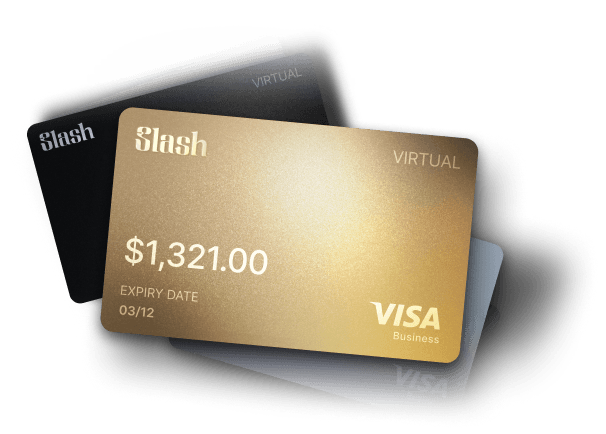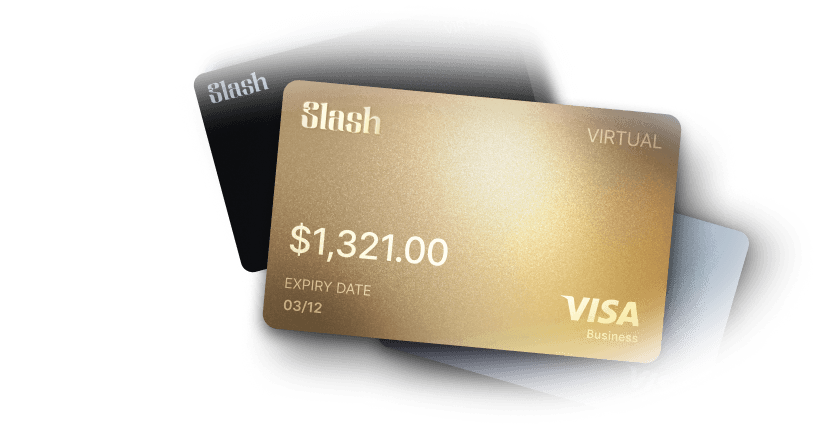Corporate Credit Cards Explained: How They Work and How to Choose the Right Program

When you imagine using a corporate credit card, you may picture an executive breezing through airport lounges or flashing a metal card at a high-end steakhouse. But there’s a whole lot more to corporate cards than access and prestige.
The right corporate credit card can be a dynamic tool for business owners that simplifies expense reports, manages employee spending, and provides real insight into company spending patterns. While rewards, rebates, or exclusivity can be valuable perks, the true advantage of a corporate card can come from strategic use. Choosing a business credit card with advanced expense management features may be of greater value, helping you build smarter financial habits that unlock your business’s full potential.
In this guide, we’ve put together a comprehensive overview of the best corporate credit cards for business owners in 2025. We’ll compare different cards’ expense tracking tools, cardholder rewards, qualification requirements, and more to help you find the best option for both your business and your employees. We’ll also explore how the Slash Corporate Charge Card can complement your business needs with industry-leading cash back up to 2%, customizable spending tools, and real-time insights into your expenses–tools that prioritize your business’s growth alongside valuable rewards.¹
What is a Corporate Credit Card and How Does It Work?
While there are many different types of corporate credit cards–T&E cards, secured cards, fleet fuel cards–they all share some basic qualities:
Corporate cards are issued exclusively to business owners and authorized employees, and they’re intended solely for business-related expenses. Like traditional credit instruments, business credit cards enable cardholders to make purchases by extending a revolving line of credit that must be repaid according to the issuer’s billing cycle. Opening a corporate credit account makes it easier to separate personal and business finances, too, which can make expense reporting, financial reconciliation, and tax filing easier.
The difference between corporate credit cards and charge cards
Two common types of corporate cards are traditional credit cards and charge cards. Understanding how each works can help you determine which type may be a better choice for your business.
A corporate credit card allows cardholders to carry a balance from one billing cycle to the next by paying less than the full statement balance. Any remaining revolving debt then accrues finance charges determined by the card’s annual percentage rate (APR). It also assigns cardholders a preset credit limit, capping how much they can spend each month.
A corporate charge card, on the other hand, doesn’t allow revolving balances; instead, cardholders must pay the full statement balance each billing cycle. While it may seem restrictive, this structure can help businesses build credit, maintain cash flow discipline, and avoid high-interest debt. Another advantage is that charge cards typically have no preset spending limit, offering greater flexibility for companies with strong capital reserves.
Benefits of a Corporate Card Program
Corporate cards have several advantages, from rewards to better financial oversight. Here are some of the key benefits:
1. Streamlined expense reporting and management
Corporate cards can simplify how companies track, report, and manage their expenses. Automated financial tools like Slash log and categorize your business expenses and sync with accounting services like QuickBooks and Xero. Accessing smart expense solutions can reduce errors from manual data entry and improve the accuracy of expense reports, streamlining business processes like audits and reconciliation.
2. Improved cash flow analytics
Some corporate cards pair with built-out analytics tools like the Slash financial dashboard, helping businesses monitor budgets across departments and access real-time insights into spending.
3. Rewards and cashback on business spending
Many corporate credit card issuers offer reimbursements and rewards for your business spending. Spending rewards can come in the form of cashback, rebates, statement credits, or redeemable points. Each of these benefits can be converted into real cash value for your business and gratifying rewards for your employees.
4. Purchasing control and policy enforcement
Some corporate card programs grant finance teams precise and customizable controls over employee spending. With Slash’s virtual cards, your business can create project-specific card groups or set customizable spend limits and employee permissions that enforce your business’s spending policies automatically. By setting spending limits your company can minimize misuse, reduce reimbursement delays, and ensure that purchases follow company guidelines.
5. Enhanced security and fraud protection
Some cards provide additional advanced security measures like virtual card tokenization, multi-factor authentication, and real-time fraud monitoring. Virtual cards can be instantly frozen or replaced using an intuitive financial dashboard like Slash that diligently monitors your company’s spending.
How to Qualify for a Corporate Credit Card
Qualifying for a corporate credit card depends on several financial and structural factors, and application requirements can vary based on your business’s size, credit profile, and spending needs. Before you begin card hunting, it’s important to organize a record of:
- Recent bank statements
- Annual revenue and cash flow
- Articles of incorporation
- Business credit score
- Employee identification number (EIN) and founders’ Social Security Numbers (SSNs)
- Personal financial information, including income and personal credit history
Your approval odds for a corporate credit card often depend on your business credit score and legal structure. If your business has limited or no credit history, you can start by using a secured business credit card, which requires a refundable cash deposit as collateral, or by applying for an EIN-only corporate card that relies on your company’s financial data, not your business credit. If you operate as a sole proprietor without an EIN, you’ll likely need to apply using your Social Security Number (SSN) instead. In that case, focus on corporate cards that weigh business credit more heavily for qualifying.
Slash’s streamlined online application can be completed in minutes, and any questions you may have can be quickly answered by our 24-hour phone support team. All you’ll need for our EIN-only application is recent bank account or credit card statements, your articles of incorporation, details about your business’s financial profile, and a government-issued identification.
Top Corporate Credit and Charge Cards in 2025
Best overall: Slash Visa® Platinum Card
The Slash Platinum Card is an industry leader for flat-rate rewards, earning unlimited cash back up to 2% on your purchases. Slash provides a corporate charge card with no preset spending limit designed for businesses with healthy cash reserves that want flexible expense management, customizable spend controls, and automated compliance that scale alongside your business needs.
Additional benefits include full integration with the Slash financial dashboard, where business owners can create custom card groupings, issue unlimited tokenized virtual cards, set employee spend limits, access real-time insights into company-wide transactions, and more.
Best for exclusive perks: American Express Business Platinum® Card
The Amex Business Platinum® card is a staple for companies with frequent travel expenses. Using the card to book hotels and flights through Amex Travel can earn cardholders up to 5x points on purchases. This corporate charge card offers a suite of rebates on retail purchases and access to a global network of airport lounges, too. However, Amex requires an excellent business credit score and an $895 annual fee for their top-tier corporate card, which could be inaccessible for some small businesses.
Best for accelerated points earning: Chase Ink Business Preferred® Card
Chase offers new customers sign-on bonuses and early account benefits with the Ink Business Preferred card, such as 3x points on purchases for 1 year and 90,000 bonus points if cardholders spend at least $8,000 in the first three months. The low spend requirement helps businesses access Chase Travel benefits sooner, which work in tandem with the card’s lack of foreign transaction fees.
Best for travel rewards: American Express Business Gold® Card
With a lower annual fee than the Business Platinum, the Amex Business Gold® card offers business owners a more accessible way to enjoy many of Amex’s premium perks and travel rewards. It remains a strong points earner, providing 3x points on flights and prepaid hotels.
Best for low-fee travel rewards: Capital One Spark 2X Miles Card
The Spark 2X Miles Card from Capital One, compared to Amex’s higher annual fees, could be an even more accessible corporate card option for applicants looking for travel rewards. With an annual fee of $95, cardholders earn up to 2x miles on every purchase, receive statement credits for Global Entry or TSA PreCheck, and do not incur foreign transaction fees. If cardholders spend $4,500 in the first three months after opening an account, they automatically earn 50,000 bonus miles.
Best for spending flexibility: Brex Corporate Card
The Brex Corporate Card gives businesses access to modern expense tracking tools and controls that make day-to-day spending more efficient. Cardholders can earn point-based rewards for travel, advertising, and other business expenses with access to a financial dashboard for tracking and managing team budgets. However, some Brex users report that their rewards structure can be challenging to track or difficulties with accounting opening.
Best introductory offer: American Express Blue Business CashTM Card
Unlike the metal Amex cards on this list, the Amex Blue Business Cash does not have an annual fee and works like a traditional credit card rather than a charge card. This card can be easier to obtain than other Amex business cards, and it incentivizes applicants with an introductory offer of 0% APR for the first 12 billing cycles, making it a great option for businesses who need up-front spending and flexibility to roll over their balance.
Best for building business credit: Bank of America Unlimited Cash Rewards Secured Card
The Unlimited Cash Rewards Secured Card from Bank of America is designed for applicants with limited or low business credit. The secured card requires applicants to inject a minimum security deposit of $1,000; the deposit amount and metrics about your company’s financial performance are used to determine the applicant’s credit limit. Even though this corporate credit card is designed for those wanting a fresh start, the card still earns a solid 1.5% cash back on purchases.
Choosing the Right Corporate Card Program for Your Business
Different corporate cards are designed to meet different business needs. Before applying, consider a few key factors to help determine which corporate card will provide the most value for your business:
- Assess spending needs and volume based on monthly, quarterly, and annual trends.
- Evaluate rewards and cashback structures by identifying your regular expense categories and opportunities for reimbursement.
- Consider automation and accounting integrations, as corporate cards vary in their capability to elevate your business’s financial planning.
- Review security features and policy controls; issuers that provide virtual cards may signal an edge, since many virtual cards, like the Slash Platinum Card, use tokenization to encrypt account information during transactions.
- Check whether a card has the ability to scale with your business growth by searching for multi-entity support or department-specific controls.
Finally, ask whether you are willing to accept a personal guarantee. A personal guarantee is a legal agreement with the corporate card issuer stating that the primary business account holder assumes responsibility for repayment if the business cannot cover the outstanding balance. This could put your personal credit score and assets at risk in the event of default. If that level of liability feels excessive, consider an issuer like Slash that offers application options that don't require a personal guarantee.
$100m+ earned in cash back with Slash
Slash has been a game-changer for managing SaaS expenses with employee cards, seamless restrictions, and flexible cashback redemption. Slash makes managing our finances effortless.


Rich Nolan, Co-Founder, Trackdrive
Smarter Corporate Card Management with Slash
In this guide, we’ve shown you how using the right corporate credit cards can provide a lot more versatility for your business than just giving your employees access to company funds. A corporate card can be a growth tool for your business, unlocking valuable cash rewards, expense management tools, scalable financial automations, and dependable policy enforcement.
Slash’s vertical banking platform and corporate charge cards combine industry-leading cash back with a financial dashboard purpose-built to help business owners take control of their spending. With Slash, you can gain access to powerful accounting features through QuickBooks and Xero, real-time payment insights, advanced spending analytics, customizable purchasing controls, multi-entity support, and much more.
If you’re looking for a corporate card program with the power to help your small business scale into an enterprise, click here to learn more about Slash’s corporate card offers and apply today.
Frequently Asked Questions
What are the types of corporate credit cards?
Corporate credit cards can be separated into two main categories: credit cards and charge cards. These differ in their payment methodology: credit cards use revolving credit, which lets cardholders roll their balance into subsequent billing cycles, while charge cards require payment in full at the end of each billing cycle.
Top Business Credit Cards of 2026
How to apply for a corporate credit card?
Most corporate credit cards have fast, free online applications on their websites. Before you apply, you should identify items like your business credit score, articles of incorporation, EIN and SSN, and details about your business’s finances.
How to Get a Business Credit Card with EIN Only: Modern Finance Solutions
How does a corporate credit card affect your credit?
Corporate credit cards are tied to your business credit score, which is a different metric than a personal credit score. A business credit score measures your business’s financial health and debt repayment ability; scores are determined by more factors than a personal credit score, such as industry risks or cash flow. However, a card offer that includes a personal guarantee can expose your personal credit score to risks.













